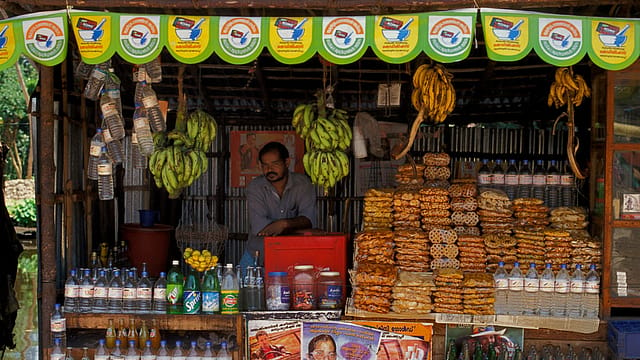Rural demand boosts top-line growth for FMCGs in Q1FY25
ADVERTISEMENT

The Fast-Moving Consumer Goods (FMCG) sector in India has shown resilience in Q1FY25, with top-line growth driven by a revival in rural demand, according to a report by Axis Securities. This growth was primarily driven by a recovery in volumes, with rural markets showing improvement and outpacing urban growth. Contributing to this positive trend were factors like a normal monsoon, strategic expansion of rural distribution networks, and the introduction of region-specific products, the report says.
Despite facing obstacles like intense heatwaves in the northern regions, increased competition, and the influence of the approaching general elections, most FMCG companies managed to secure mid to high single-digit revenue growth, the report states.
Rising rural demand, fuelled by government spending and a robust festive season, is anticipated to further drive growth in the coming quarters. However, the growing competition from smaller and regional players presents a challenge that companies need to address, the report says. “Companies must navigate volatile raw material prices, which could impact margins."
After several quarters of significant gross margin expansion, Q1FY25 saw a slowdown in margin growth for most FMCG companies. This deceleration is attributed to the high margins in the base period and rising raw material price volatility, especially in agricultural commodities. "The sector maintains an optimistic outlook, with opportunities for growth in under-penetrated categories such as shampoos and premium detergents."
January 2026
Netflix, which has been in India for a decade, has successfully struck a balance between high-class premium content and pricing that attracts a range of customers. Find out how the U.S. streaming giant evolved in India, plus an exclusive interview with CEO Ted Sarandos. Also read about the Best Investments for 2026, and how rising growth and easing inflation will come in handy for finance minister Nirmala Sitharaman as she prepares Budget 2026.
The report highlights that the FMCG sector presents compelling investment prospects due to its robust return ratios, such as Return on Capital Employed (ROCE) and Return on Equity (ROE). Last month, ratings agency CRISIL projected that the FMCG sector will see a 7-9% rise in revenue this fiscal year, fuelled by anticipated volume growth from a rebound in rural demand and steady urban demand. This forecast came after an estimated 5-7% growth in fiscal 2024.
Several leading FMCG companies in the country, such as Marico, Dabur, and Adani Wilmar, anticipated better revenue growth for the June quarter (Q1FY25) due to a resurgence in rural demand.
In the financial results call for Q1 FY25, Mohit Malhotra, CEO of Dabur India Limited, noted that their strategy to extend their presence to over 1.22 lakh villages proved highly beneficial, as rural demand exceeded urban demand by 350 basis points during the quarter. To serve this expanded network, the company has broadened its product range by introducing new affordable and rural-specific packaging across various categories.
Post Q1 results, Marico stated that in FY25, they plan to scale up Phase 1 markets and enter additional states. They anticipate that Project SETU will not only improve direct reach and weighted distribution but also help increase market share across both urban and rural segments. This initiative is expected to enhance the variety of products available in urban stores, supporting both diversification and premiumisation in their domestic business.
Adani Wilmar, a partnership between Adani Enterprises and Wilmar International, offers a range of edible oils, such as mustard, sunflower, and soybean oil. Following the Q1 results, the company reported that its coverage in rural towns expanded by 40% year-over-year (YoY), reaching over 30,000 towns by the end of June 2024.
